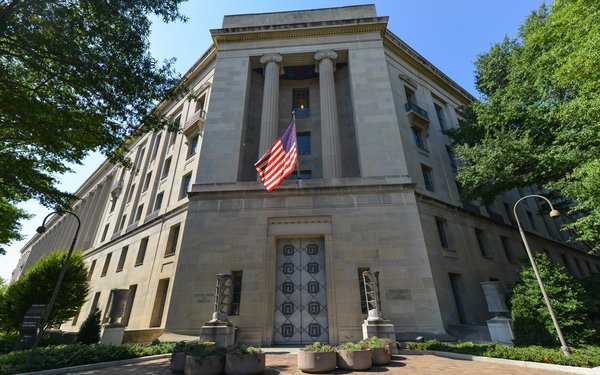
Apple waited too long to seek to intervene in a four-year-old
antitrust battle that could result in an order ending the company's multibillion-dollar search partnership with Google, federal and state antitrust enforcers argue.
“Apple's intervention
at this late stage would cause substantial unfair prejudice,” the Department of Justice and a coalition of state attorneys general argue in a brief filed Wednesday with the D.C. Circuit Court of
Appeals.
They add that intervention by Apple “would significantly delay the resolution of the case” and prolong the “serious harms to competition” caused by Google's
monopoly in search.
The government lawyers are asking the court to uphold an order issued by District Court Judge Amit Mehta in Washington, D.C., who rejected Apple's request to present live
testimony and cross-examine the government's witnesses in an upcoming hearing addressing how to remedy Google's monopolization of search.
advertisement
advertisement
Apple's request came in a battle dating to October
2020, when government lawyers claimed Google violated antitrust law by illegally creating and maintaining a monopoly in search.
Mehta presided over a trial in the case, and ruled in August that Google violated antitrust law by arranging to serve as
the default search engine on browsers operated by Apple and Mozilla, as well as on Android devices.
Mehta is expected to commence a trial in April over potential remedies.
In October,
the government offered a “framework” for remedies and, on November 20, government officials spelled out requests for specific restrictions on the company -- including that it end its
search deal with Apple. That agreement involves Google serving as the default search engine for Safari, and paying Apple around 36% of search revenue for queries originating on Safari. The agreement
resulted in an estimated $20 billion payment from Google to Apple in 2022.
In late December, Apple sought to intervene in the case, arguing that it has a stake in the outcome.
Mehta
rejected that request, ruling that Apple should have known earlier that the lawsuit could affect the company's deal with Google. Although he said Apple can't fully participate in the upcoming hearing,
his ruling allows the company to submit two affidavits and make written arguments.
Apple recently asked the federal court to reverse that decision, arguing that it has a right under federal
procedural rules to intervene, and that it wasn't clear until late November that antitrust officials would seek to end its search deal with Google.
“Apple moved promptly once it became
clear its interests were not adequately represented -- one month after plaintiffs targeted Apple with a sweeping remedy,” the company argued in papers filed earlier this month with the appellate
court.
Apple added that if it can't intervene and fully participate, it “will be a mere spectator” in a hearing at which the government will present testimony “about
everything from Apple’s capabilities in the search market to its economic incentives related to search engines.”
The Justice Department and state attorneys general counter in their
new papers that Apple should have moved sooner.
“Throughout the four-plus-year history of this case, Google’s contractual relationship with Apple has been front and center,”
the antitrust enforcers argue.
“Apple sat on its hands by not moving to intervene until late December 2024, when the remedies stage was well underway,” they add.
The
government lawyers also contend that Google and Apple have “shared interests” in their search partnership, and that Google will be able to defend those interests at the remedies
hearing.
Apple is expected to file a new round of papers by March 5.